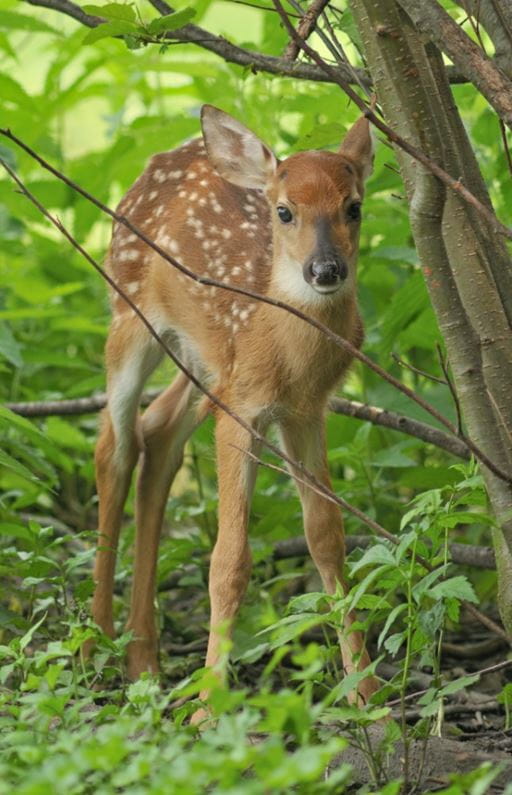Released on May 19, 2022
The Ministry of Environment has a simple message for well-meaning people who want to rescue what appear to be orphaned young animals: please don't touch them.
Many animals leave their young alone for long periods while they forage for food, or to protect them from predators. During these times, the young can be vulnerable to children, pets, or even well-intentioned adults.
While "saving" the animal may seem like the right thing to do, contact with humans can significantly decrease a young animal's chances for survival.
In most cases, young animals are not abandoned at all - the mother is often nearby and sometimes even watching.

There can be hazards for humans, too. Wildlife can carry infectious diseases that can be transmitted to people, including rabies and West Nile virus. It's also illegal to take wild animals home. Only recognized wildlife rehabilitators are licensed to care for orphaned and injured animals, as they have the expertise to provide appropriate care. This will give the animals the best chance when they are released back into the wild.
A young animal should only be picked up if the parent is found dead nearby, or if the animal is found in an unnatural situation, such as a baby bird on a doorstep. In that case, you can move the young bird to the closest suitable habitat.
A basic rule to follow is this: unless you believe they are in immediate danger, always call for advice before removing young animals from the wild.
For instance, before concluding that a deer fawn is abandoned, ask yourself:
- Has it been lying in the same position for more than 10 hours?
- Is it vocal?
- Is it covered in insects?
- Is it wet, possibly covered by the morning dew?
If the answer to any of these is yes, the animal may have been there a while and needs help.
If you can see obvious signs of injury or evidence that the animal has been orphaned, please contact your local conservation officer.
Remember to give wildlife - of all ages - space and respect.
-30-
For more information, contact:
Val Nicholson
Environment
Prince Albert
Phone: 306-953-2459
Email: Val.Nicholson@gov.sk.ca
Cell: 306-981-5645

